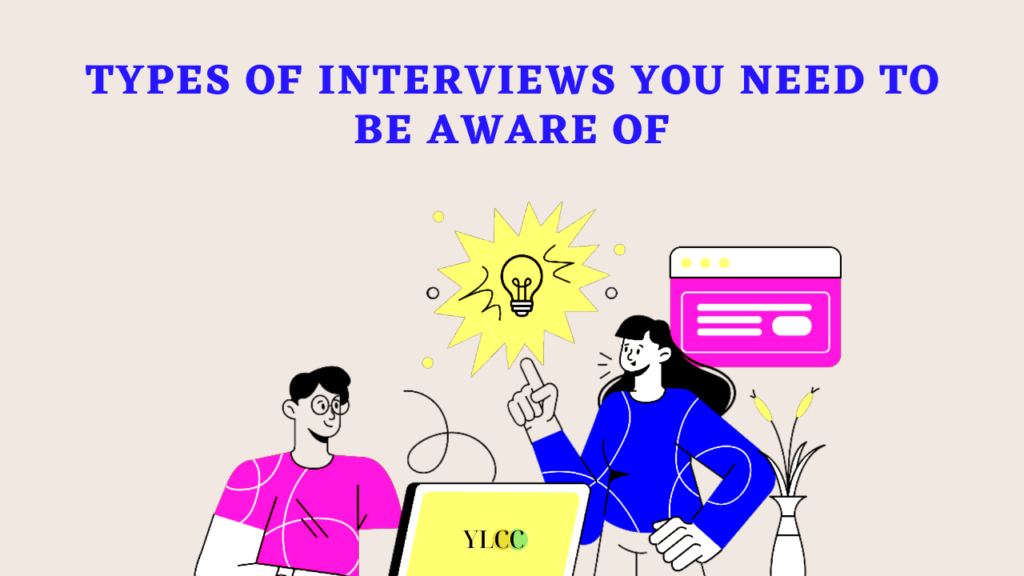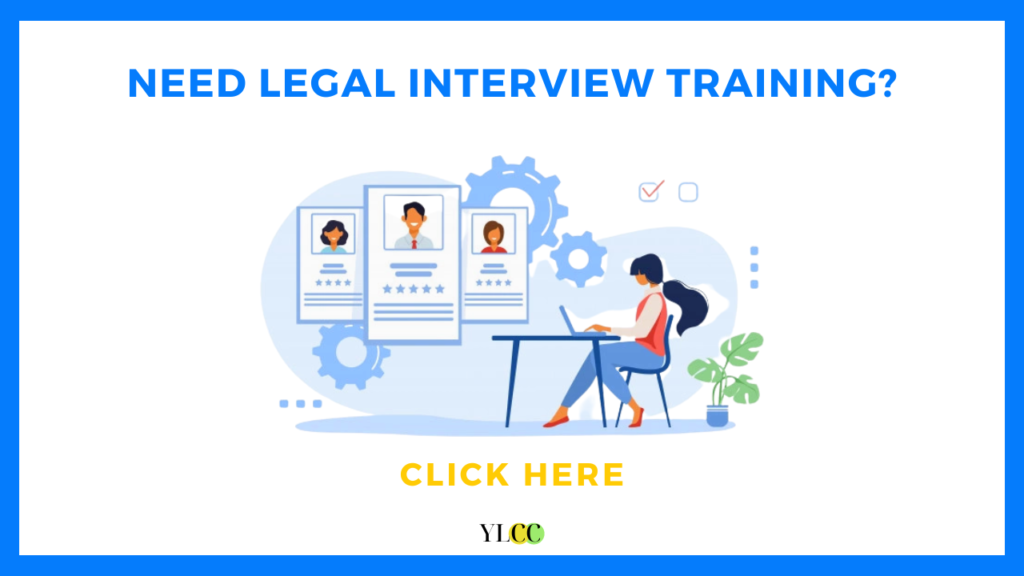
An interview is an essential process in any recruitment process at a workplace. An interview gives an opportunity to both the candidate and employer to know more about each other to determine whether they are the correct fit for each other. For candidates, though, an interview is more important as their performance is evaluated against that of other candidates who are competing for the same position or job.
While the crux of all interviews may be similar to each other, on the basis of the agenda or mode of conduct, interviews can be classified into different kinds. In this article Team YLCC brings you the different types of interviews that one can opt for. Read on!
1. INFORMATIONAL INTERVIEW
In an informational interview the objective is to seek advice and learn more about a particular employer, sector or job. Interviewing experts in their field is one more way to add to your employment knowledge base. As a result, gaining this information means you are more prepared. It is also an excellent way of networking and adding to your contacts.
2. SCREENING OR TELEPHONE INTERVIEW
Phone interviews – these types of interviews are proving to be a more cost effective way to screen candidates. Slots range from 10 to 30 minutes. Firstly, prepare for it as if it is an open book exam. Secondly, make sure you have your CV, the job description, list of references and prepared answers noted in front of you. A large part of communication is visual and as they can’t see your body language, it critical to have positive and sharp answers delivered with enthusiasm. Finally, don’t forget to ask what the next step will be.
3. INDIVIDUAL INTERVIEW
Often referred to as a “personal interview” this is the most common type of interview and is usually held face to face at the company’s offices. Individual interviews usually range from 30 to 90 minutes. Shorter interviews will mean delivering concise answers that are to the point. On the other hand longer interviews allows the candidate more time to go into detail and support his or her answers with examples.
4. SMALL GROUP OR COMMITTEE INTERVIEW
These forms of interviews entail meeting with a group of decision-makers at the same time. If you are not well prepared in advance, this might be overwhelming and intimidating. However, having more than one interviewer increases efficiency and allows for multiple perspectives on the same question. Make eye contact with everyone on the panel, not just the one who is asking the question, and try to establish a rapport with each member. It is also worth attempting to figure out who’s on the panel and what their titles are.
5. THE SECOND OR ON-SITE INTERVIEW
The second interview indicates that you were effective the previous time around and that they want to learn more about you. As a result, these types of interviews can be longer, lasting up to a full day in some cases. They usually entail meeting three to five persons, including Human Resources, the line manager, the office employees, and the department head. Most key, be proactive and enthusiastic! Attempt to learn as much as possible about the day’s agenda, since this will help you feel less concerned about the entire procedure. Under usual practice, this is the final stage before a job offer is made.
6. BEHAVIORAL-BASED INTERVIEW
The principle behind Critical Behavioral interviewing (CBI) is that performance in a similar scenario in the past is the best predictor of future performance. This interview strategy goes far deeper than traditional interviewing procedures. Prepare specific examples that demonstrate your abilities in fundamental areas including teamwork, problem-solving, communication, creativity, flexibility, and organisational skills. Be systematic in your responses, though, and describe your examples in terms of the situation, the task, the action you did, and the result you achieved.
7. TASK ORIENTED OR TESTING INTERVIEW
These types of interviews are structured in a way that allows you to demonstrate your creative and analytical abilities in problem solving through varied tasks or exercises. It may include a short test to evaluate your technical knowledge and skills. Other tasks can be delivering a presentation to a group to determine your communication skills. Relaxing is key!
8. STRESS INTERVIEW
This type of interview is uncommon, and it entails the interviewer baiting you to see what you’ll say. The goal is to expose your flaws and see how you react under duress. The tactics used to push you to your limits might range from repeated interruptions and strange silences to stimulating and tough interrogation-style inquiries. Furthermore, it is worth considering whether you want to work for a company that is willing to go this far even before an offer is made.
YLCC would like to thank Riya Gupta for her valuable inputs in this article.







